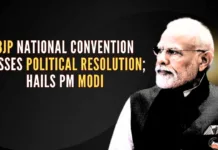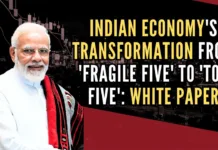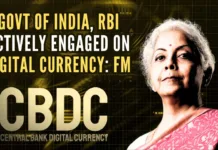
Battery swapping policy big booster for EVs
Giving a major boost to the EV industry, the Union Budget 2022 has proposed a new policy to promote battery swapping technology in India. There has been a sharp rise in electric two-wheeler manufacturers over the past few years, and with the increase in EV adoption in the segment, the Centre’s new policy aims to further consolidate India’s EV infrastructure in near future.
Electric vehicle battery swapping is a place at which an electric vehicle’s discharged battery or battery pack can be immediately swapped for a fully charged one, eliminating the delay involved in waiting for a vehicle’s battery to charge.
The policy will be critical in enabling a well-established EV infrastructure across the country while instilling customer confidence in riding EVs on Indian roads.
Finance Minister Nirmala Sitharaman said the private sector will be encouraged to develop sustainable and innovative business models for ‘Battery or Energy as a Service’.
While presenting the Union Budget Sitharaman said, “This will improve efficiency in the EV ecosystem. The government will also promote a shift to use of public transport in urban areas complemented by cleantech and governance solutions, special mobility zones with zero fossil-fuel policy, and EV vehicles.”
Vivekananda Hallekere, CEO and Co-Founder, Bounce, said that the government and policymakers have recognized battery swapping as the most effective solution to accelerate EV adoption in India.
Hallekere said, “It addresses range anxiety and hesitancy in adoption as well as considering the pragmatic aspects of setting up charging infrastructure — for instance, space constraints in urban areas for dedicated charging stations. We believe this move can enable affordable and clean mobility at scale.”
“More importantly, this will boost EV adoption in the last-mile delivery space, where time constraints make instant battery swapping more viable than charging the existing battery,” said Jeetender Sharma, MD, and Founder of Okinawa Autotech.
Pune-based startup BatteryPool, founded by Ashwin Shankar, is solving challenges around battery swapping.
“We believe battery swapping is the right approach for charging electric two and three-wheelers, especially in urban areas. Now, what would be interesting to see are the interoperability standards that have been laid out by the government and how the industry conforms to these standards,” he said.
The global electric vehicle battery swapping market was valued at $100.1 million in 2020 and is projected to reach $852.6 million by 2030, registering a CAGR of 24.4 percent, according to Allied Market Research.
[With Inputs from IANS]
PGurus is now on Telegram. Click here to join our channel and stay updated with all the latest news and views
For all the latest updates, download PGurus App.
- Siddaramaiah govt under NCBC lens after it pushes for Religion-based quota in Karnataka - April 24, 2024
- RBI bans Kotak Mahindra Bank from onboarding new customers via online, mobile banking channels and issuing new credit cards - April 24, 2024
- JP Morgan CEO lauds economic reforms by Modi govt; says PM Modi lifted 400 mn people out of poverty - April 24, 2024










